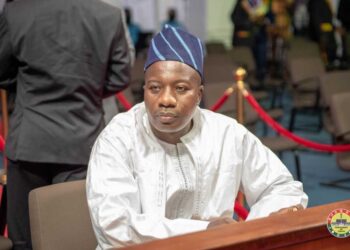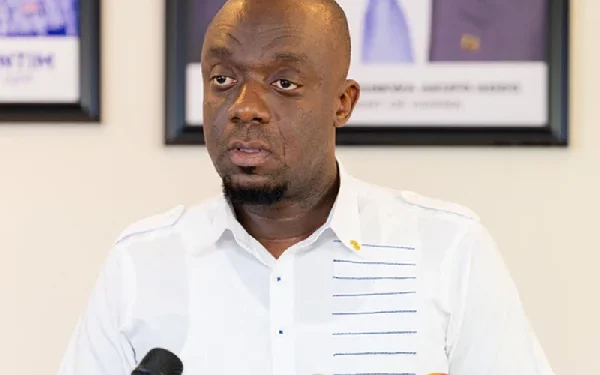President of the Chamber for Local Governance (ChaLog), Richard Fiadomor, has expressed his disappointment in government over its management of confirmations of MMDCEs across the country.
According to him, there are stipulated guidelines leading to the process of confirming the position of a nominee MMDCE which must be followed. Giving his take on the violent disruptions in Wa, Mr Fiadomor, revealed that exclusive privileges which were the preserve of assembly members have been taken over by regional ministers.
He explained that timetable created by these ministers generates problems as party faithful troop to centres to ensure their MMDCEs gets “confirmed”.
“We are not happy the way this particular government has gone about this whole MMDCE issue apart from the delay. [With] confirmation of chief executives, there are special meetings that have to be held. Per the [article], special meetings are called by the presiding member. But we have a situation whereby the powers of the presiding members to call the meetings have been reset by the regional ministers and they come up with a timetable. It is not compulsory that everywhere that there’s going to be confirmations, the regional ministers must be there. But the regional ministers have taken over the process as if [when] they are not there, confirmation processes cannot be done; that is what is creating the problem”.
Mr Richard Fiadomor
Confirmations of MMDCEs across the country
The ChaLog President, commenting on the general outcome of confirmations so far, considered the process “good”.
Expounding on the powers of the assemblies in deciding the fate of nominees, Mr Fiadomor, noted that the constitution affords them the privilege in approving nominees. This, he explained, gives them the “choice” and “power” to do the voting.
“I think that if you look at the confirmations that have happened and the rejections that have also gone on… I think it is sizable in terms of the confirmations and the rejections are also negligible. So, we think that so far, so good, except for the few violent situations that we have been hearing.
“If you look at Article 243 (1) of Ghana’s constitution, it just gives the power to the President to nominate someone. When we talk about assembly members, here, we are referring to the elected assembly members and indeed… they are bona fide members of the general assembly. So, they are the ones that are doing the voting. We also appreciate the fact that sometimes there are external pressures brought to them, especially from the party angle… But ultimately, they are the ones that are doing the voting. If there are other factors that are coming to play, obviously they don’t come to play on the floor of the house”.
Mr Richard Fiadomor
Wa municipal assembly confirmation brawl
Currently, the Wa municipal assembly, is fraught with scuffles over some corruption allegations against their nominee, who despite the allegations managed to sail through.
Touching on the tension in the assembly, Mr Fiadomor revealed that due to the number of assembly members, it is “very easy” for the confirmed MMDCE to “trash up issues” with members.
Additionally, he explained that if there are issues that are strong enough, it is the assembly members who must take it up. This is because they “have the power to not only reject but remove the MMDCE” they have confirmed.
“Sometimes, what we see and hear from outside may not necessarily be what happens on the inside. So, of course, we the outsiders may have heard about a few allegations here and there… if those allegations are not coming from the honourable assembly members; then you can be sure it’s not going to have any significant impact on their voting process.
“So, if the allegation of corruption was something that was key, I believe they would have rejected him. Maybe they did not factor it because it may not have that kind of merit that we the outsiders have been hearing”.
Read Also: There’s limited knowledge on RTI law- Kwaku Asante





















